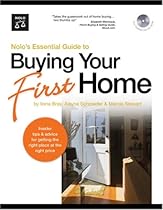Use a mortgage interest rate lock to put the brakes on the interest rate roller coaster ride and be sure your mortgage remains affordable until you sign on the dotted line.
by Broderick Perkins
© 2008 DeadlineNews.Com
Unauthorized use of this story is a copyright violation - a federal crime
Deadline Newsroom - An interest rate lock is always a good idea in any market.
But it becomes a better idea when it's crucial to lock in an interest rate and other loan costs at a level you can afford.
A changing market -- especially when the change is for the worst -- is one of those crucial times.
During the first half of 2008, nearly a full percentage point separated the high of 6.45 percent in recent weeks and the low of 5.48 percent in January, according to Freddie Mac.
Get off the interest rate elevator ride with an interest rate lock.
A traditional rate lock is a lender's guarantee that your mortgage will come with a specific interest rate, points, other costs and terms.
Most locks are designed to protect home buyers from rising rates, but those refinancing can also benefit.
A rate lock's terms include a specified period for the lock. If you fail to complete your home purchase or refinance before the clock runs out, and interest rates rise, brace yourself for higher costs.
Those higher costs could come in the form of more up front cash to keep monthly payments in line with what you can afford or what you lender will allow.
With a refinance, if your home ownership isn't at stake, you have more wiggle room and can wait out the market, take less cash out or otherwise cope.
Of course, those refinancing to stave off foreclosure could also find higher rates, without a rate lock, to be just as problematic as for home owners.
In an up-and-down interest rate market, falling interest rates are another strong reason for a rate lock.
If interest rates fall during the lock period you can't take advantage of the lower rate unless you rewrite the lock at additional cost or include a "float down" provision in the original lock.
The "float down" option grants you a lower rate if rates fall within a given window of time. Again, unless specified otherwise, float downs stick you with the higher rate if rates rise during the lock period.
All these rate lock variations underscore the importance of being sure the language of the lock contract gives you the options you need, for a sufficient term.
Get it all in writing. It's difficult to enforce a verbal agreement.
The contract should lock should lock in the interest rate, points and other costs, where possible. The agreement should include your name; the lock's effective date; lock cost; what terms are locked; the lock's expiration date and time; and any post-lock options.
Lock as soon as you see the desired rate or "on application" -- when you first apply for the mortgage -- so that your rate is locked as you spend time getting the application approved. That's particularly important if you barely qualify at today's rates, and an increase would make buying unaffordable.
Of course, you can choose to set the lock on approval, especially in markets where loan applications are prolonged due to heavy demand for housing.
In any event, the lock period should be long enough to allow for settlement, contingencies, and other potential delays. Locks average 30 days, but can range from 15 to 60 days.
Also consider:
• Locks cost money. Shop around for both the terms of the lock contract and its cost, which varies from lender to lender. Some lenders want up-front lock fees. Others take them at settlement. There are non-refundable fees, flat fees, and fees based on a percentage of the mortgage, among the variations.
• Before choosing a lock-in period, determine the average time for loan processing. Ask your lender to estimate the time necessary to process your loan and verify the information with other realty professionals. If the loan doesn't close on time, lenders can extend your lock for free, charge more for the extension or charge an additional percentage of the loan amount.
• Once you lock-in a rate, if you haven't already, quickly submit the application and other required documents. You should have previously checked your credit report, prepared income, job, debt, asset and other documents to back up your application information.
• If you have a floater, it's your job to keep an eye on the market.
• The Federal Reserve's A Consumer's Guide To Mortgage Lock Ins" offers more information.
© 2008 DeadlineNews.Com
Get news that really hits home for your Web site or blog from DeadlineNews.Com.
Broderick Perkins, an award-winning consumer journalist of 30 years, is publisher and executive editor of San Jose, CA-based DeadlineNews Group -- DeadlineNews.Com, a real estate news and consulting service and Web site and the new Deadline Newsroom, DeadlineNews.Com's news back shop. In both cases, it's where all the news really hits home.
DeadlineNews.Com's Editorial Content Is Intellectual Property • Unauthorized Use Is A Federal Crime
Tuesday, July 15, 2008
Mortgage Rate Locks Critical
From The
Deadline Newsroom
on
7/15/2008 09:00:00 AM
![]()
Labels: Broderick Perkins, Deadline Newsroom, DeadlineNews.Com, Federal Reserve, interest rates, mortgage meltdown, rate lock, refinance
Subscribe to:
Post Comments (Atom)


No comments:
Post a Comment